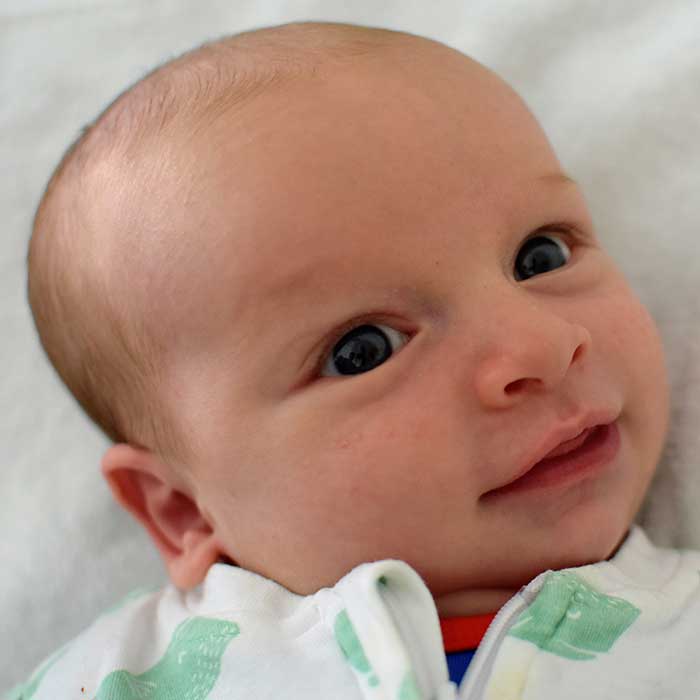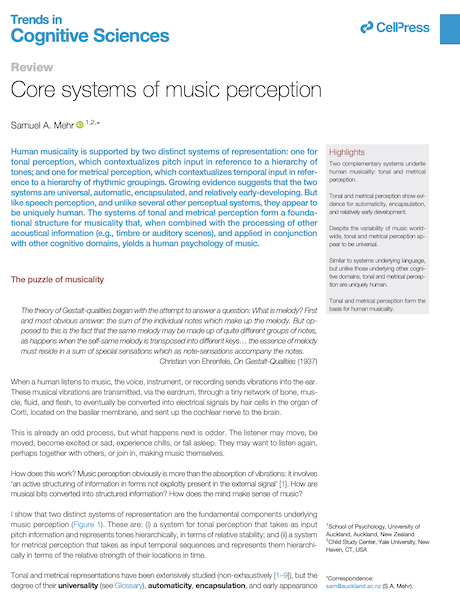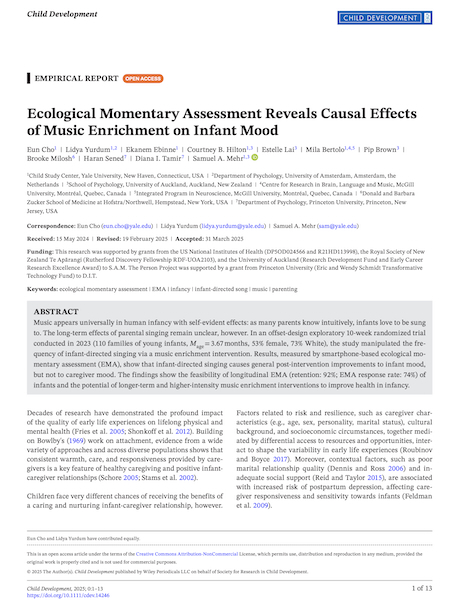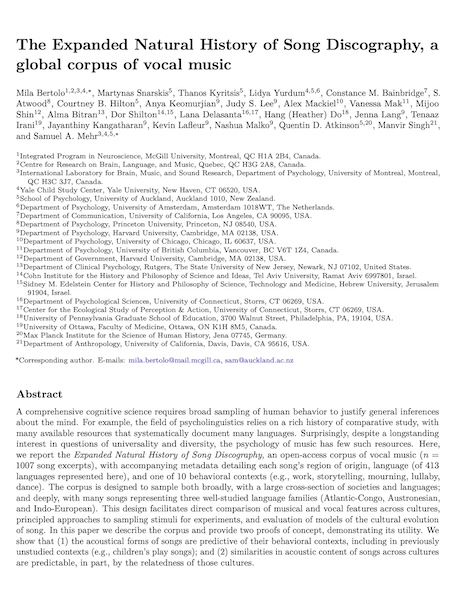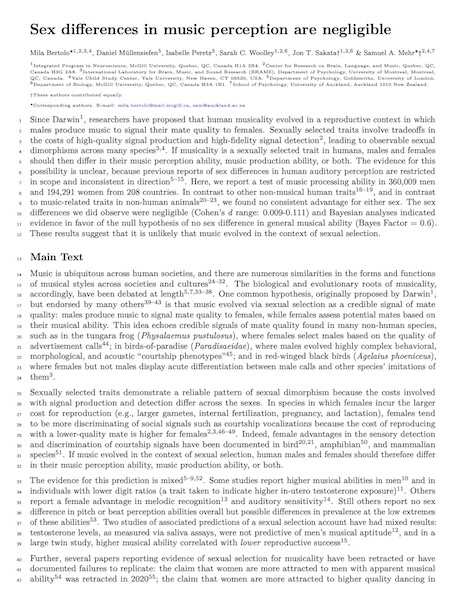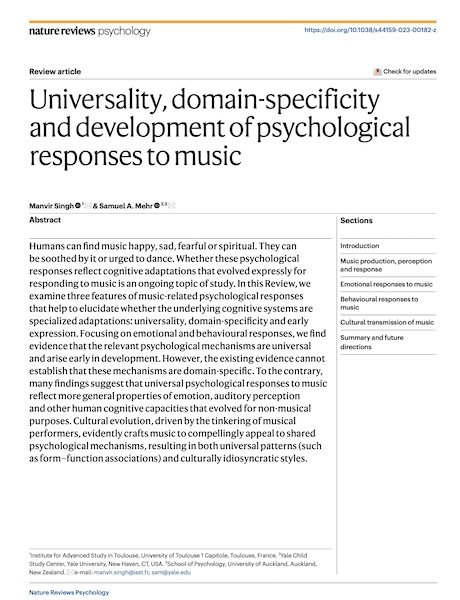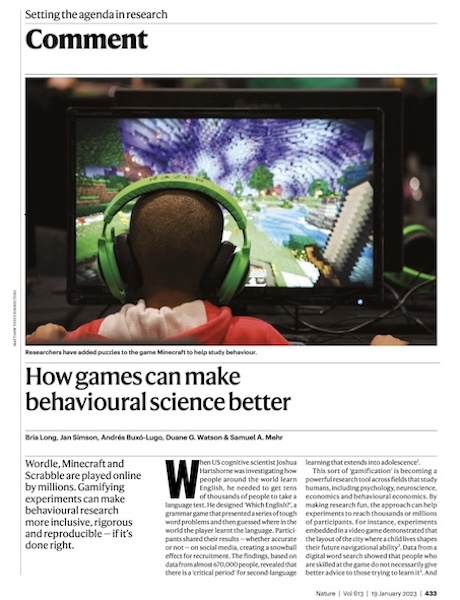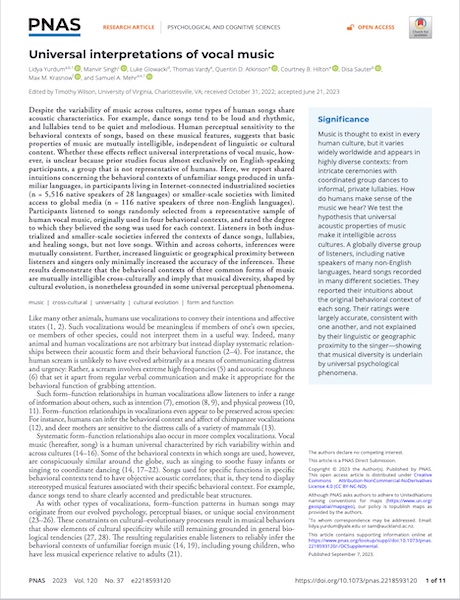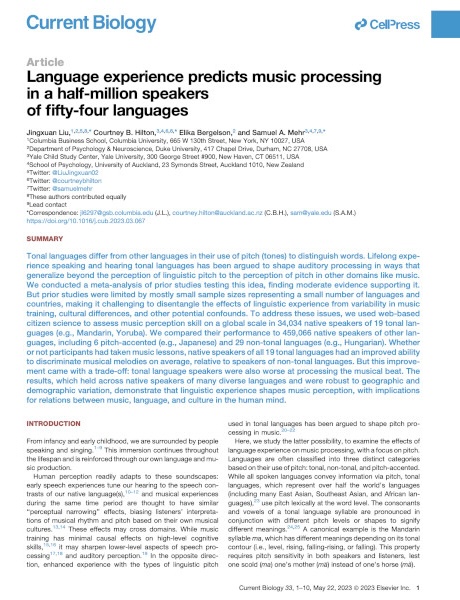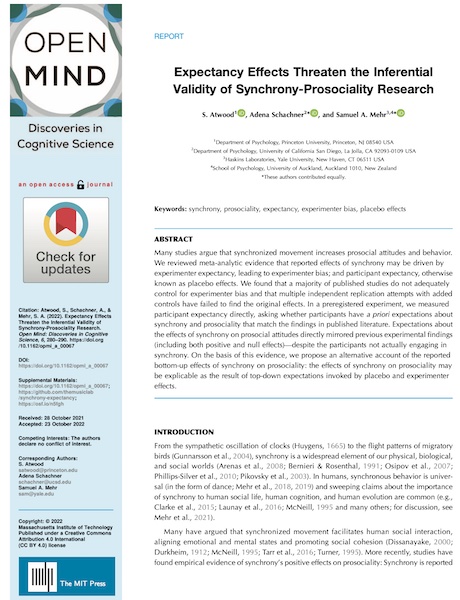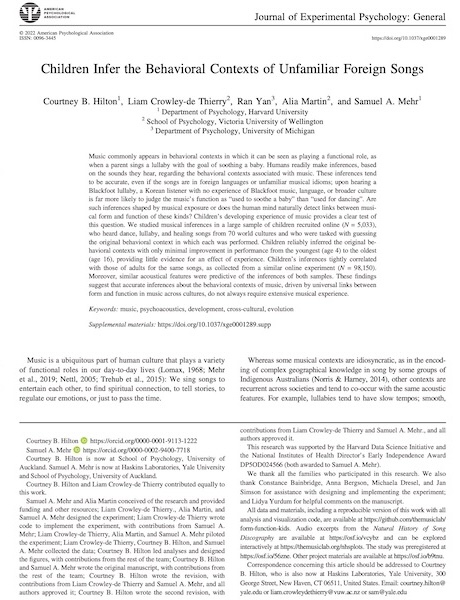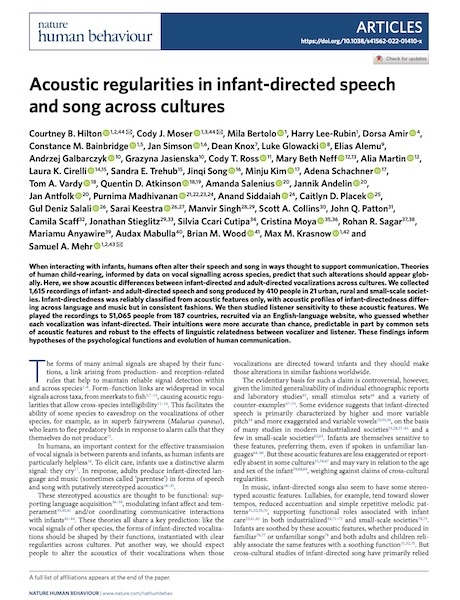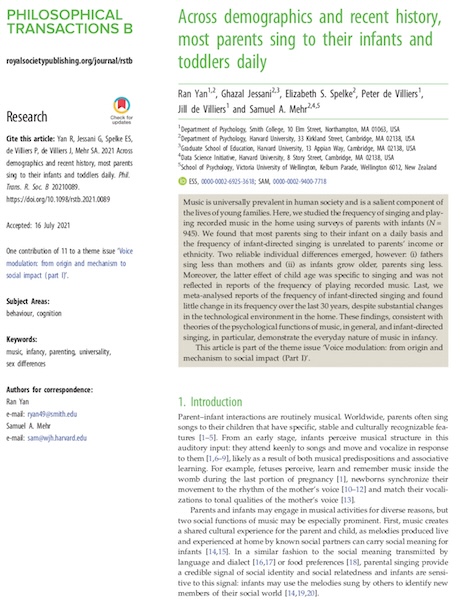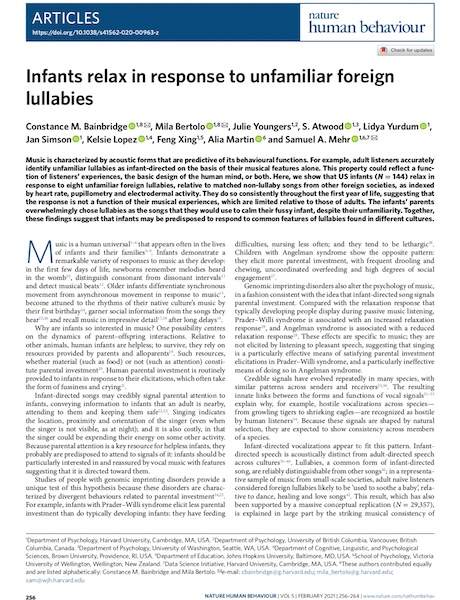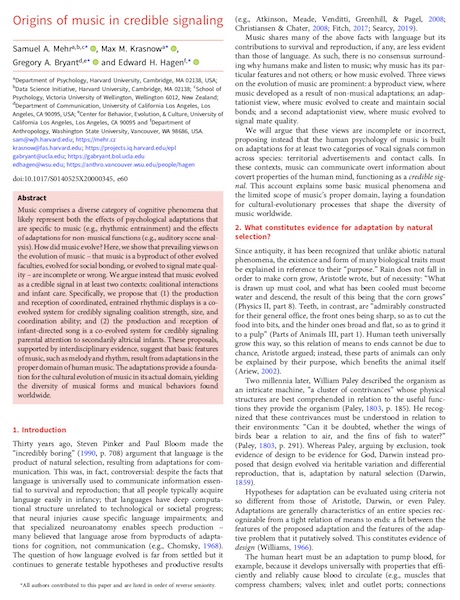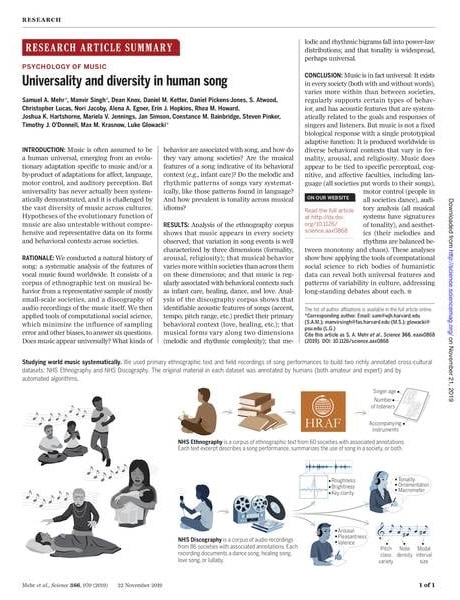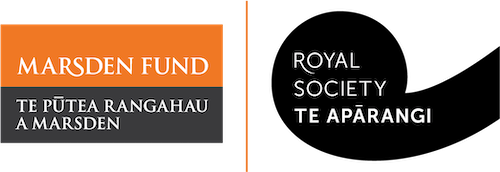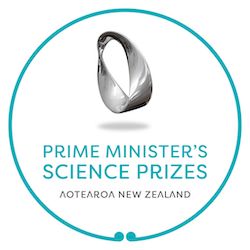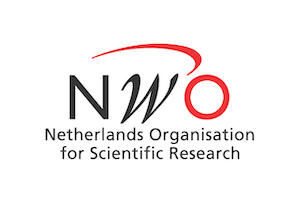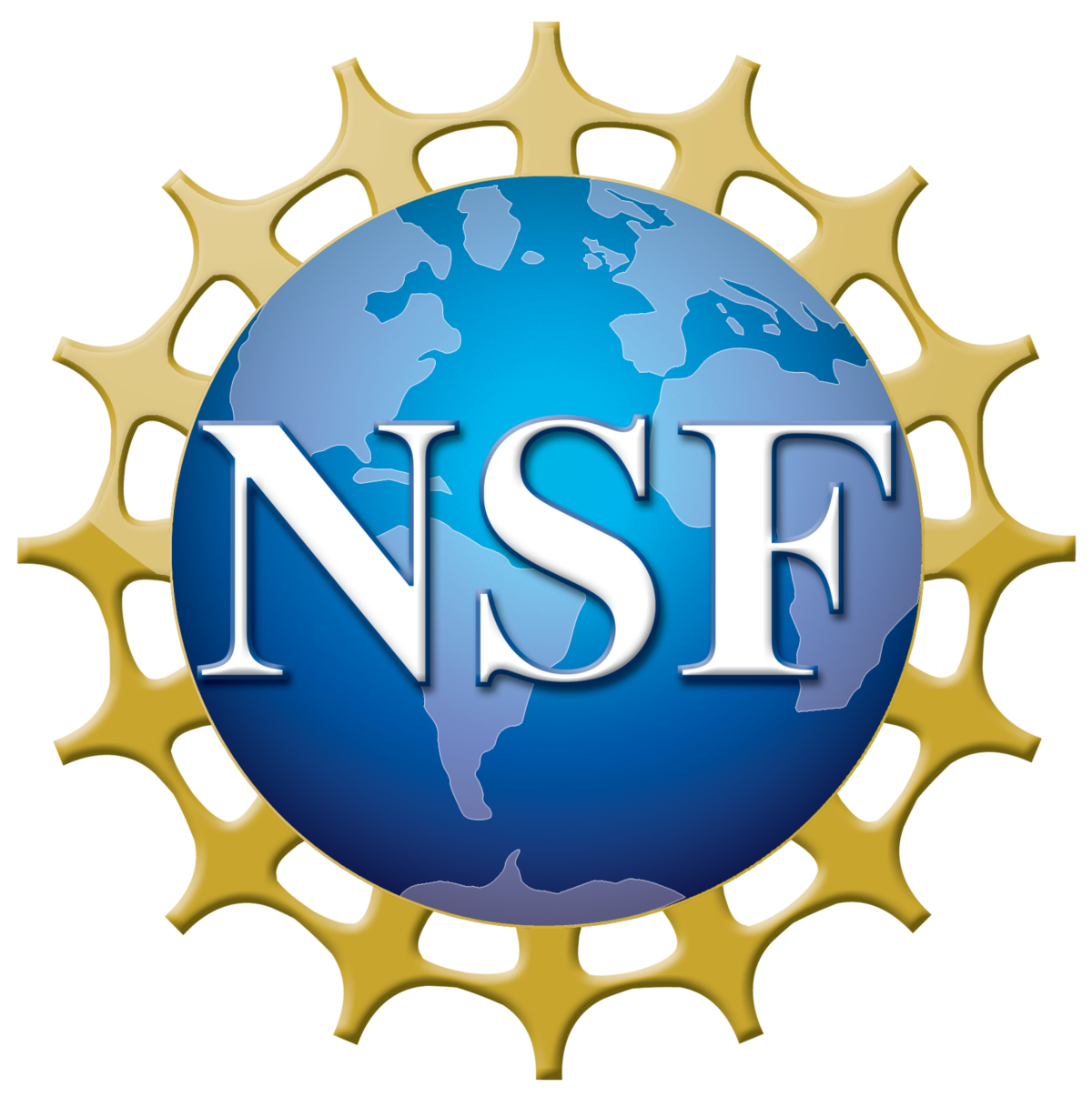learn more
If you are reading this, you are probably doing so on a device that plays music. You are probably able to hear and understand that music. You probably can also produce music of your own, even if you've never had music lessons. You probably engage with music on a regular basis, regardless of your cultural background, location in the world, or socioeconomic status. You have probably been this way your whole life.
In the Music Lab, we're figuring out why the human mind is designed in such a way that all of the above is true. We do basic cognitive science experiments with many different populations and with people who live all over the world, including in small-scale societies. We also work on large corpus studies of ethnographies and field recordings from the Natural History of Song project, which we host.
The Music Lab is based jointly at the University of Auckland (in New Zealand, as a part of the School of Psychology) and Yale University (in New Haven, as a part of the Yale Child Study Center).
On this site, you can learn more about us and about our work, read our papers, and participate in experiments online!
news
- Our new paper in Child Development was covered on National Public Radio and the Wall Street Journal.
- Our PI, Samuel Mehr, was awarded the NZ Prime Minister's MacDiarmid Emerging Scientist Prize!
- If you'd like to hear about our current research, this interview on Radio New Zealand includes some discussion of our newest studies.
- Our cross-cultural research on infant-directed speech and song was covered on the front page of the New York Times, on the TODAY show, and in many other spots worldwide.
- We've moved! After 5 years at Harvard, we transitioned our citizen-science platform to the Yale Child Study Center (USA) and our brick-and-mortar lab to the University of Auckland (New Zealand).
read our papers!
A selection of recent and not-so-recent papers is available here. Some of these are preprints and are not yet published. A full list of publications is available at our PI's website.
people
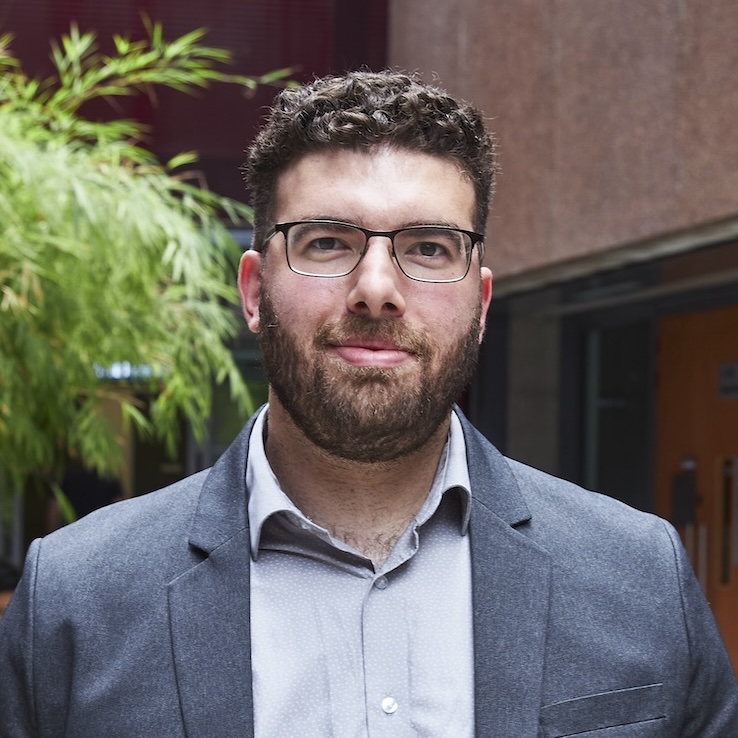
Samuel Mehr
Principal Investigator (website)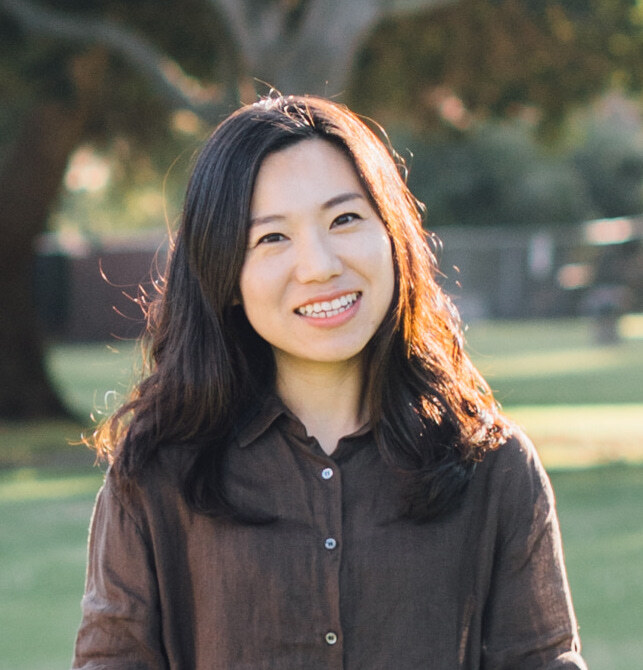
Eun Cho
Postdoc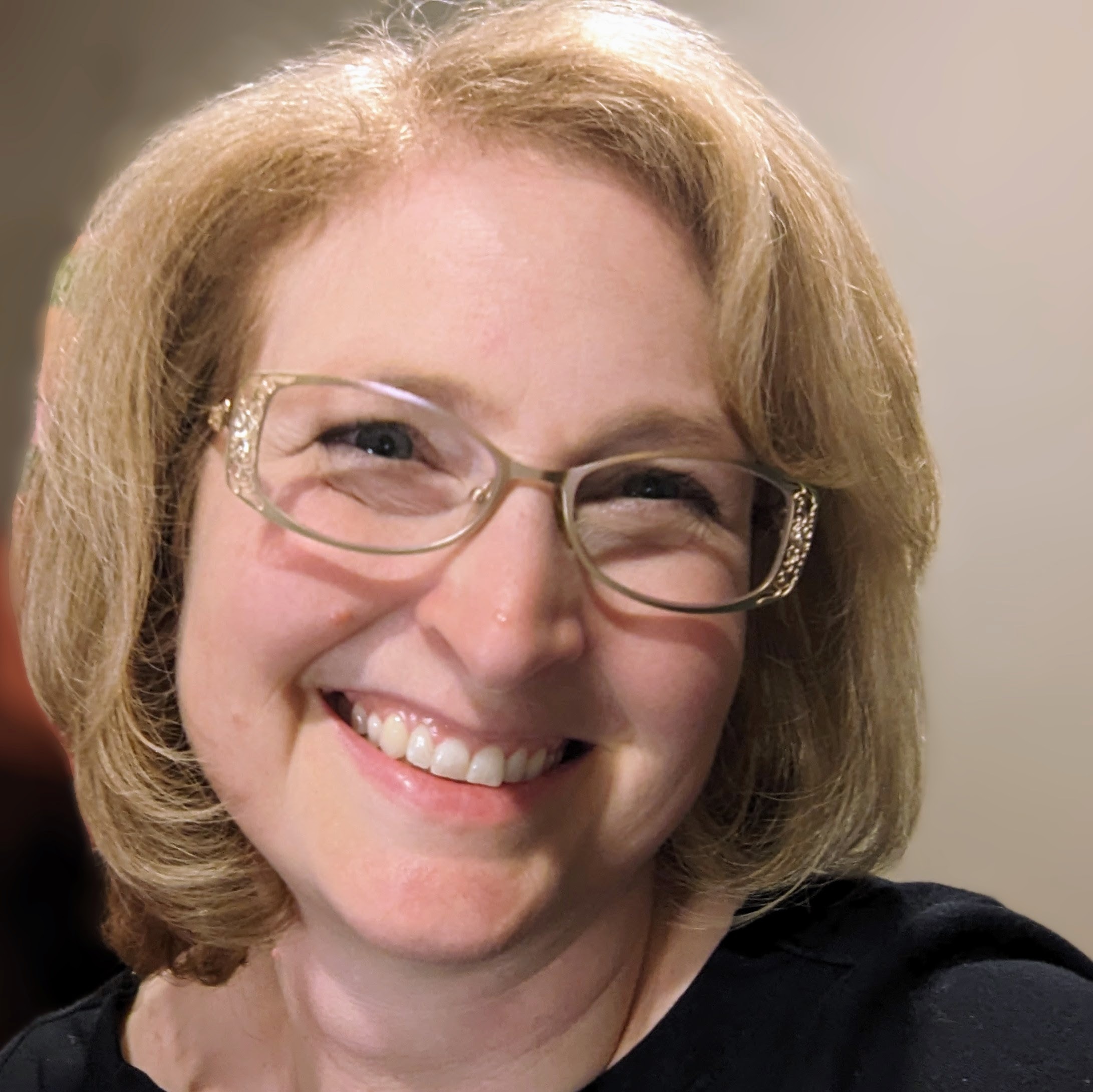
Carol Ann Blank
Affiliated Postdoc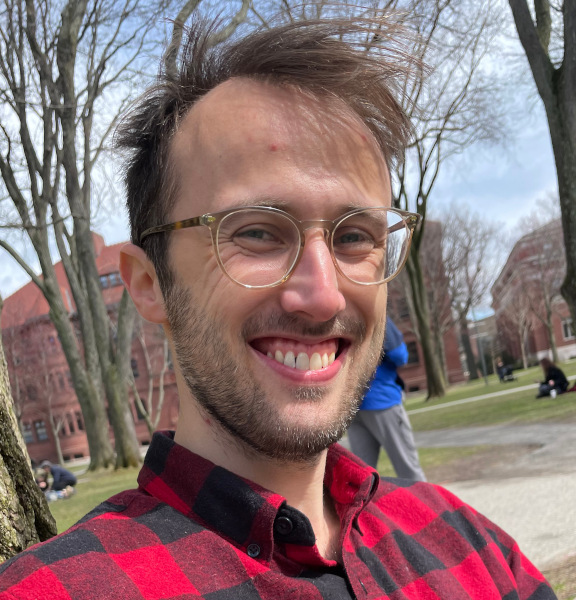
Courtney Hilton
Affiliated Postdoc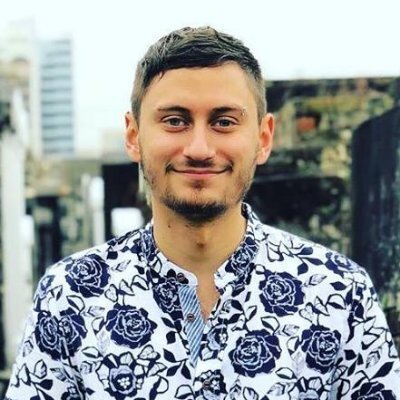
Logan James
Affiliated Postdoc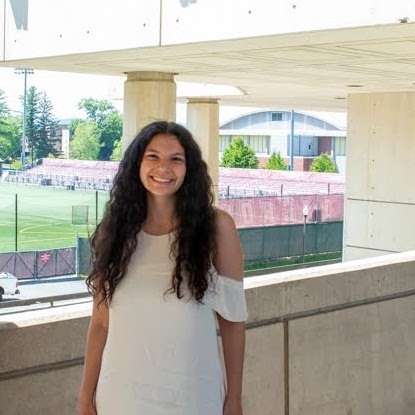
Juliet Barry
Graduate Student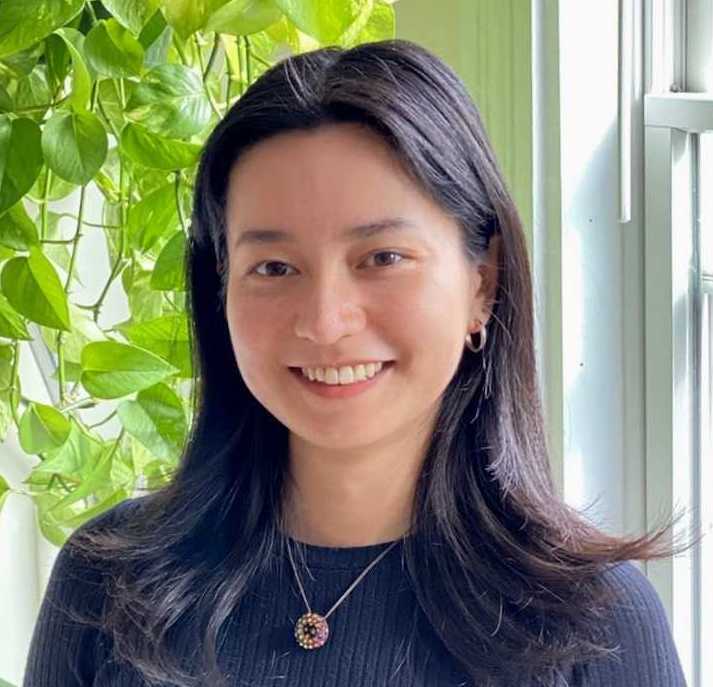
Mila Bertolo
Graduate Student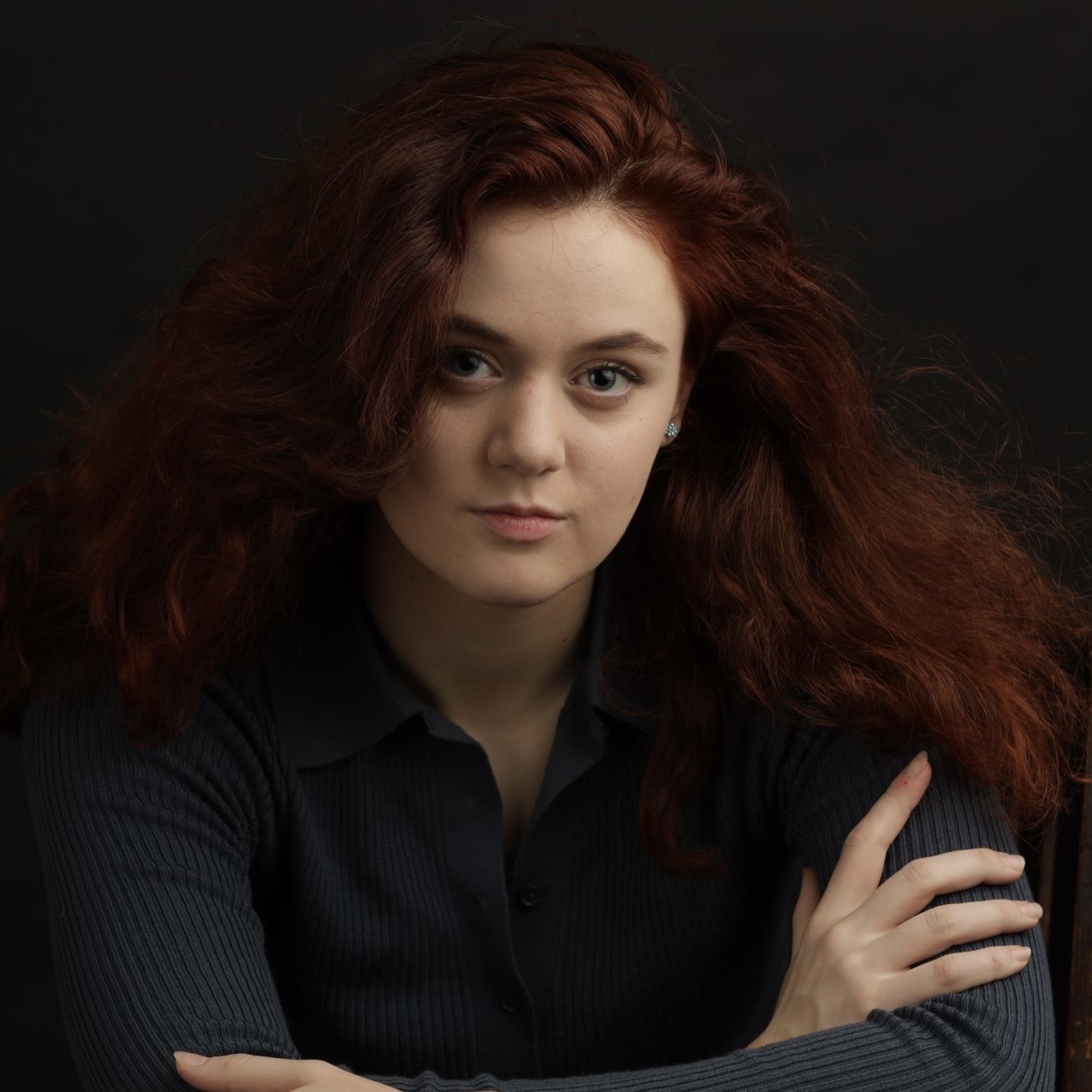
Francesca Bliss
Graduate Student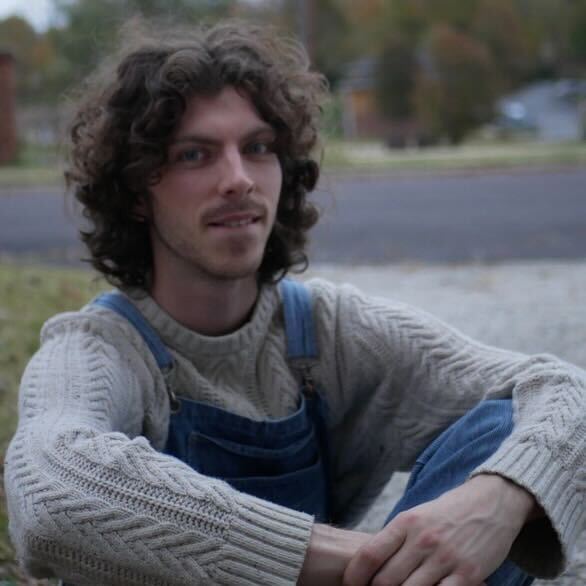
Matthew Luke
Graduate Student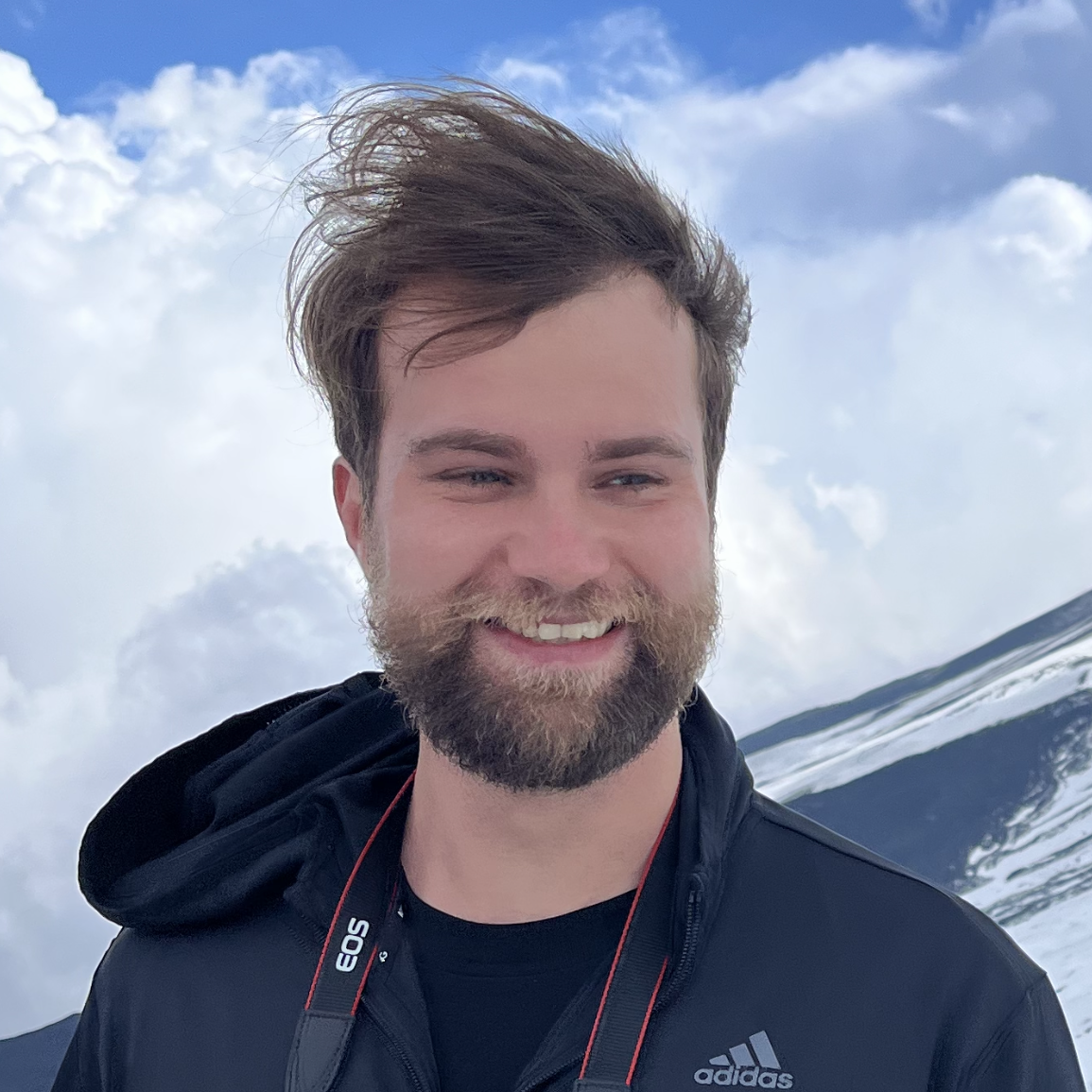
Gage Quigley-Tump
Graduate Student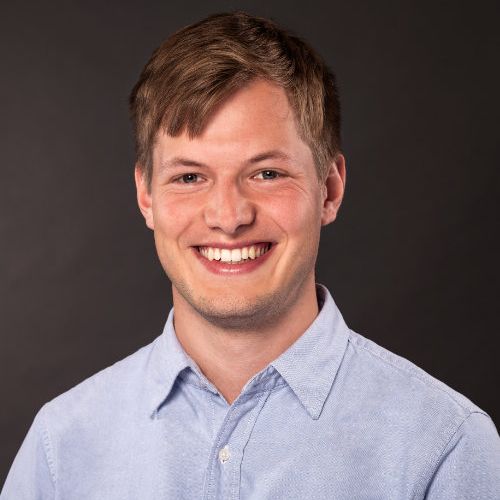
Jan Simson
Graduate Student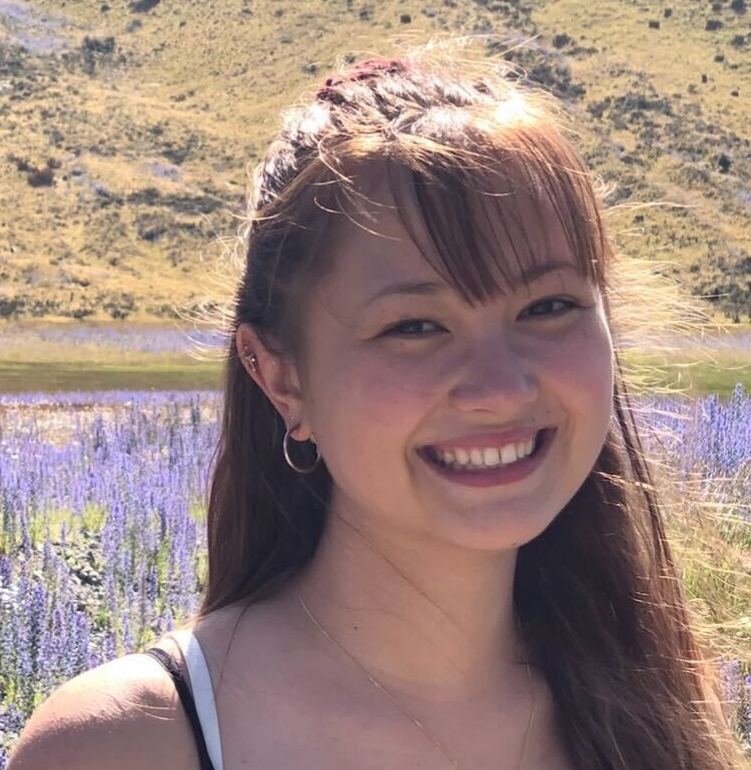
Zoé Schelp
Graduate Student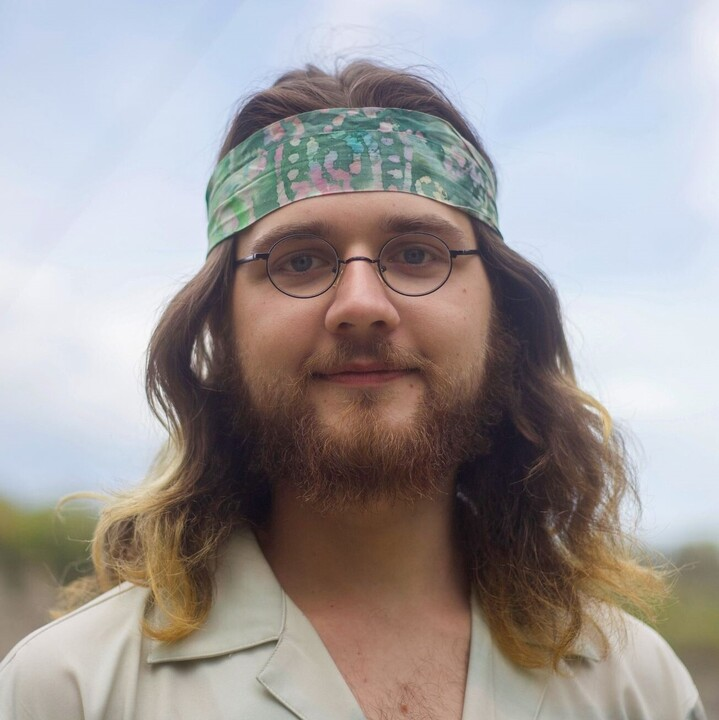
Marty Snarskis
Graduate Student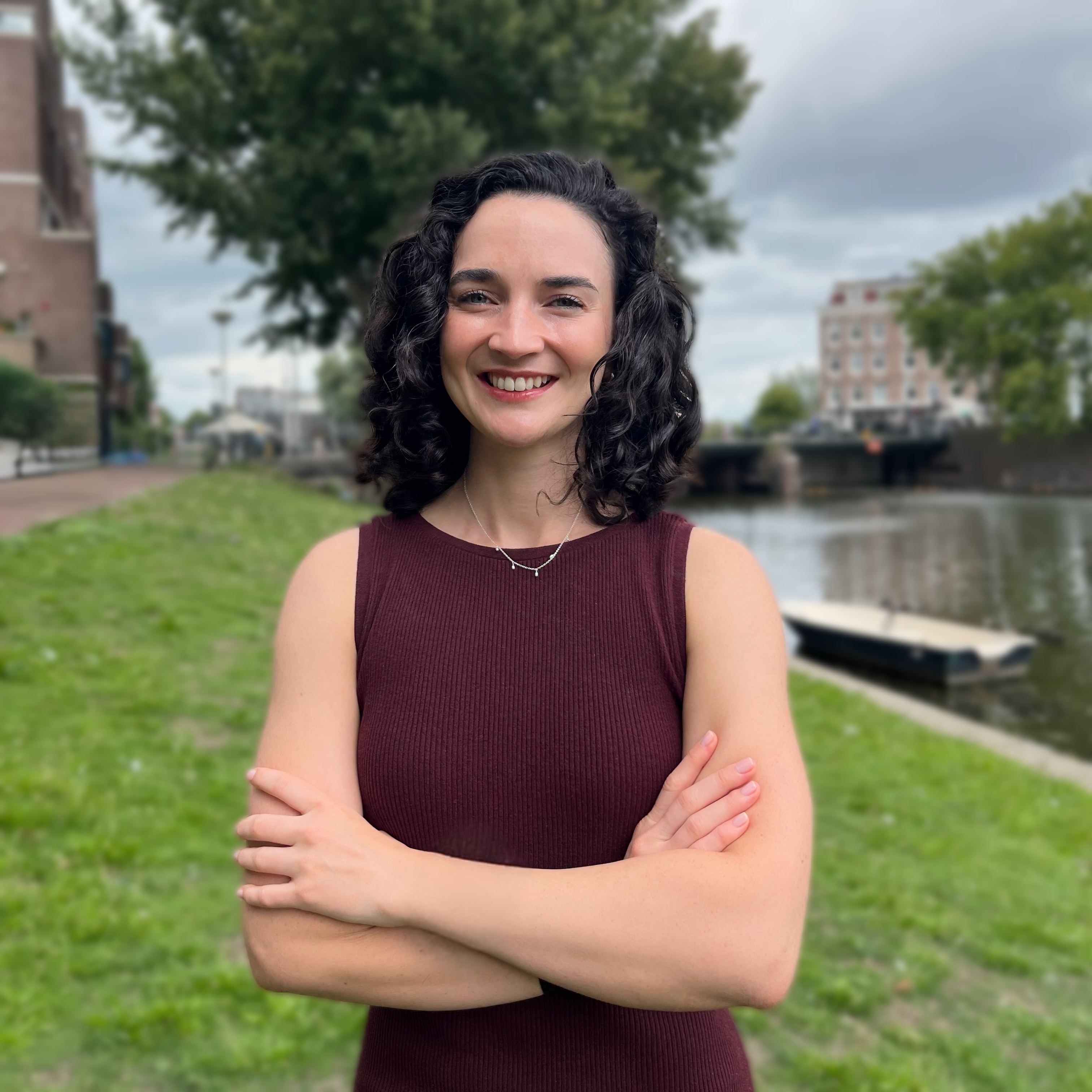
Lidya Yurdum
Graduate Student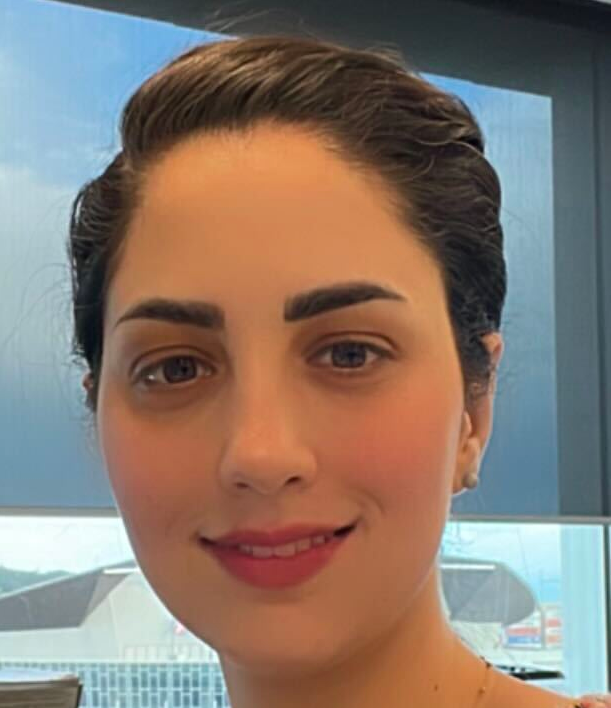
Sorour Zekrati
Graduate Student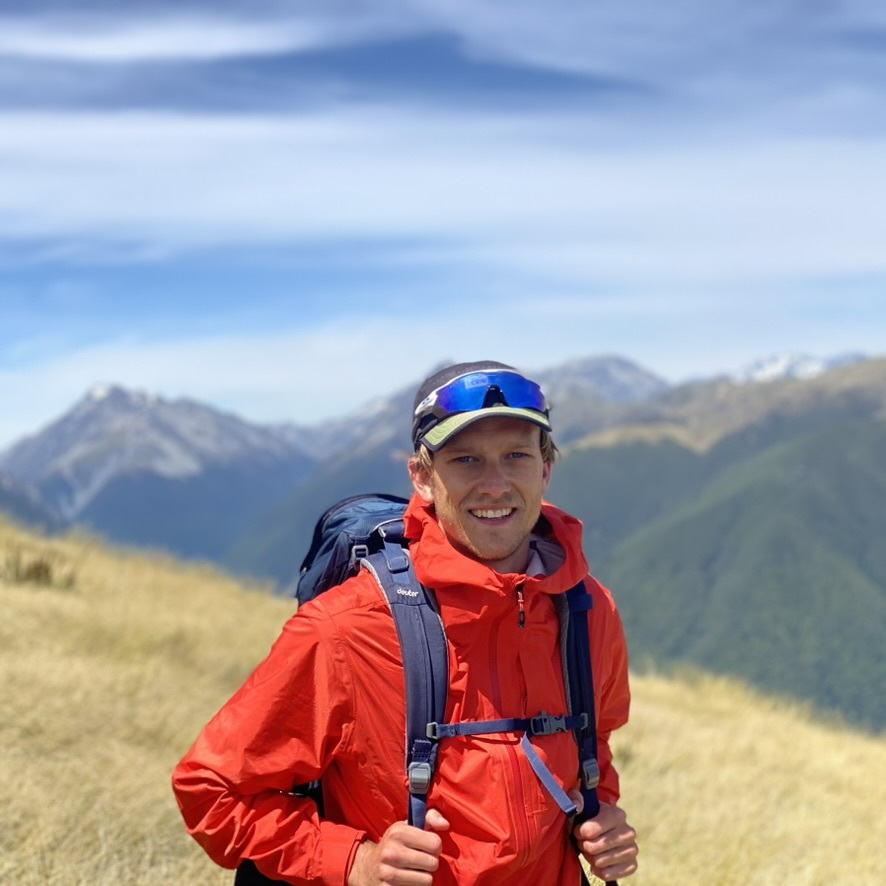
Laurence Silk
Honours student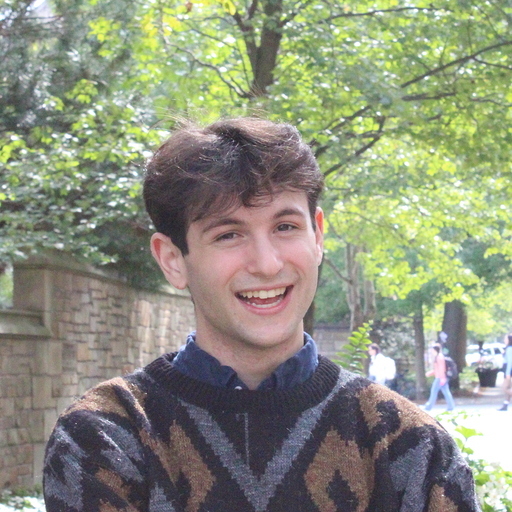
Lucas Oland
Undergraduate intern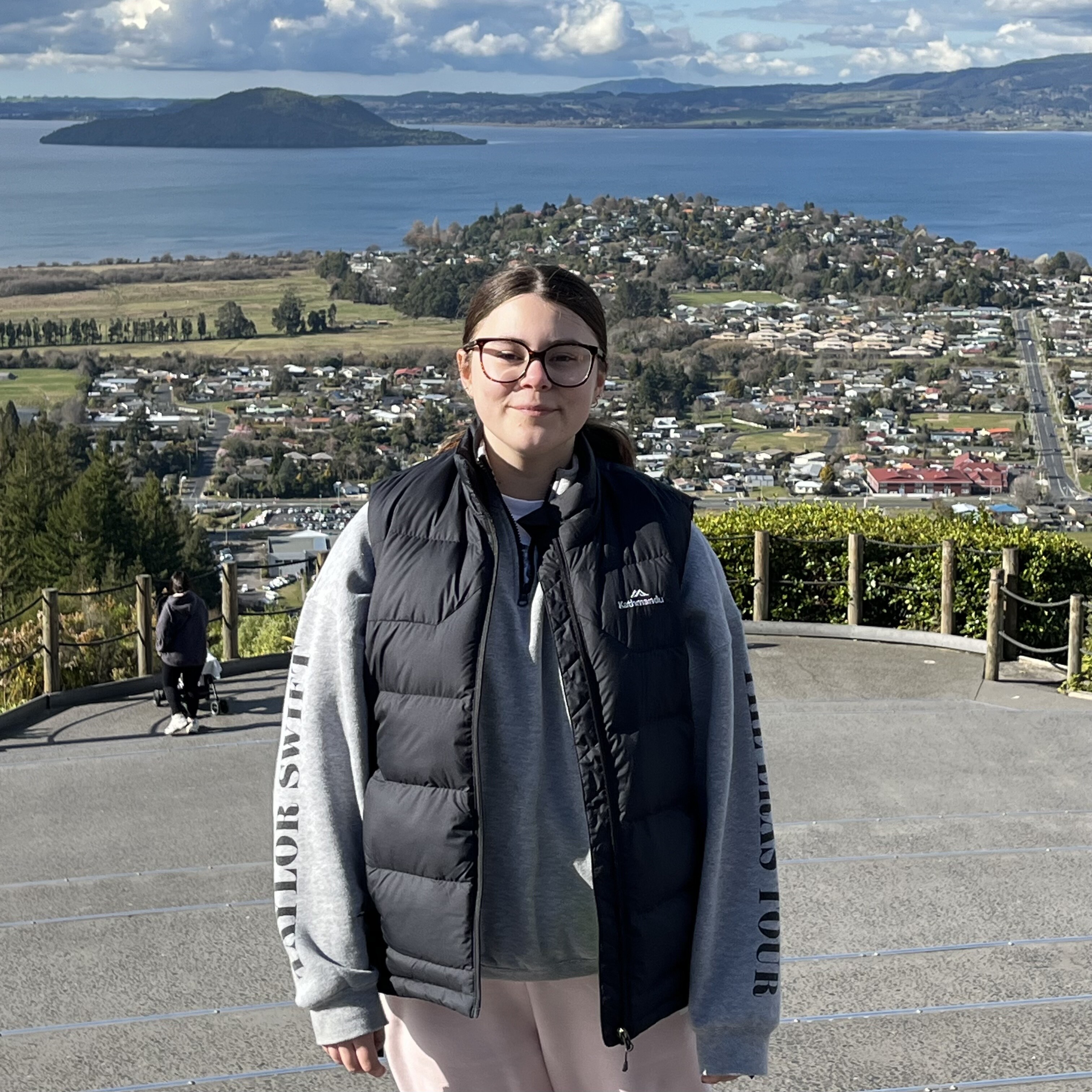
Grace Munro
Undergraduate Intern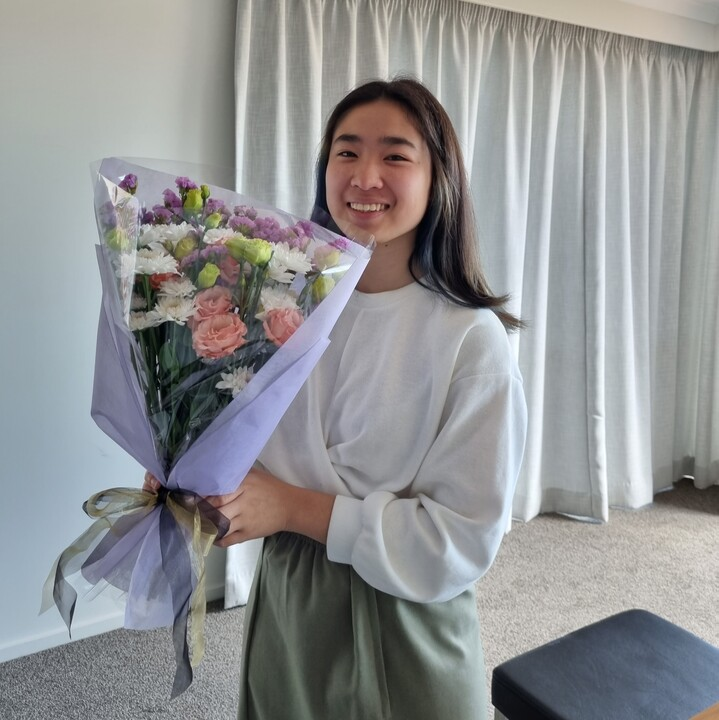
Estelle Lai
Postbacc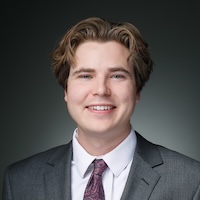
Carter McCaskill
Postbacc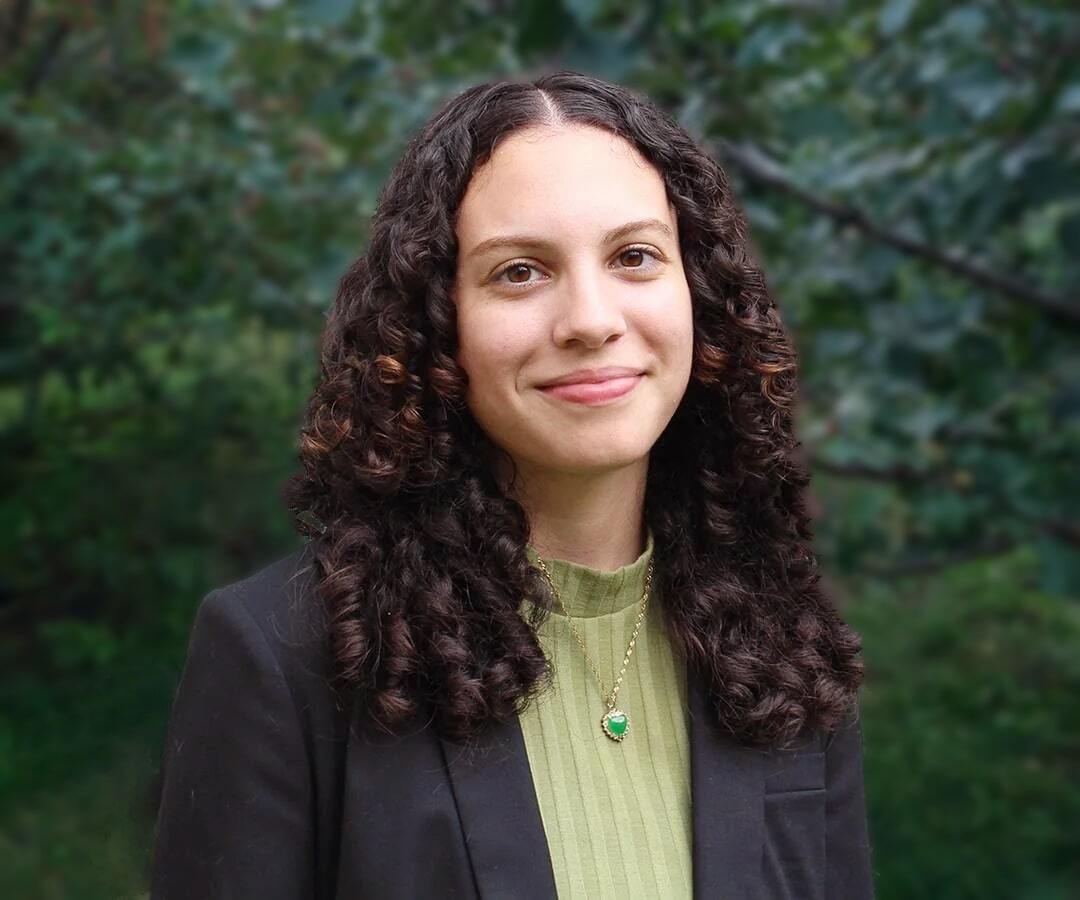
Sophia Moret
Postbacccollaborators, past and present
- Quentin Atkinson
University of Auckland - Aaron Benjamin
University of Illinois at Urbana-Champaign - Charlie Chubb
UC Irvine - Joshua Fiechter
Wright State University - Carolyn Fredericks
Yale University - Luke Glowacki
Boston University - Reyna Gordon
Vanderbilt University Medical Center - Daniel Ketter
Missouri State University - Dean Knox
University of Pennsylvania - Max Krasnow
Harvard University - Tony Lambert
University of Auckland - Joshua de Leeuw
Vassar College - Linda Mayes
Yale Child Study Center - Daniel Müllensiefen
University of Hamburg - Timothy O'Donnell
McGill University - Isabelle Peretz
Université de Montréal - Jon Sakata
McGill University - Disa Sauter
University of Amsterdam - Adena Schachner
University of California, San Diego - Manvir Singh
University of California, Davis - Sandra Trehub (d. 2023)
University of Toronto, Mississauga - Ellen Winner
Boston College - Sarah Woolley
McGill University
We also work with many others on the Natural History of Song project: learn more at themusiclab.org/nhs.
alumni
Maxx Shearod
Honours Student (2024), based at Yale University.
Sania Nourbakhsh
Research Assistant (2024), based at the University of Auckland.
Pip Brown
Visiting PhD (2023), based at the University of Warwick.
Ekanem Ebinne
Research Assistant (2022-2023).
Rachel Yan
Affiliated grad student (2020-2022), currently a PhD student in Psychology at the University of Michigan.
Jingxuan Liu
Affiliated grad student (2020-2023), currently a PhD student at Columbia University.
Judy Lee
Research Assistant (2020-2021).
Cody Moser
Affiliated grad student (2018-2022), currently an Assistant Professor at the School of Collective Intelligence, Mohammed VI Polytechnic University, Morocco.
Alex Mackiel
Research Assistant (2021), currently a PhD student in Developmental Psychology at the University of Chicago.
Liam Crowley
Honours student (2019-2021), currently a PhD student in Psychology at Victoria University of Wellington.
Mila Bertolo
Lab manager (2019-2021) and summer intern (2018), currently a PhD student in Neuroscience at McGill University, working in the Sakata Lab
Anna Bergson
Summer intern (2019), currently practicing social work in Washington DC.
Brooke Milosh
Summer intern (2019), currently completing medical school at Hofstra University.
S. Atwood
Lab manager (2018-2019), currently a Research Associate at the Children's Hospital of Philadelphia.
Constance Bainbridge
Research Assistant (2018-2020), currently a PhD student in Communication at the University of California, Los Angeles, working with Greg Bryant.
Julie Youngers
Summer intern (2018), currently working in the North Kansas City public schools.
Dylan Feng Xing
Summer intern (2018), as of August 2024 Dylan is completing a postdoc fellowship as a clinical psychologist at the Yale Health Center.
Kelsie Lopez
Summer intern (2018), currently a PhD student in the Plasticity in Neurodevelopment Lab with Dr. Laurel Gabard-Durnam in the Center for Cognitive and Brain Health.
Alma Bitran
Summer intern (2018), currently a PhD student at Rutgers University working in the DBT-RU practicum training site.
join
If you are interested in joining the lab you can express your interest here (for prospective postdocs) or here (for prospective grad students). We can support PhD applicants at the University of Auckland (in New Zealand) or at Yale, either in Psychology (if working jointly with a Psychology faculty member) or via the Child Study Center. Please note that funding for PhD study is competitive and may not be guaranteed, depending on the particulars of your application.
We do not currently have any open positions for full-time, salaried research assistants, but depending on background and funding availability, we are able to host part-time RAs working in New Zealand or New Haven. If you are interested in such a position, for hourly pay; or if you would like to apply to work with us for academic credit (at the University of Auckland or at Yale) or work-study (at Yale), please contact us at musiclab@yale.edu. In general, we do not recruit volunteers, with the exception of students who are sponsored by their home institution to do an internship with us.

